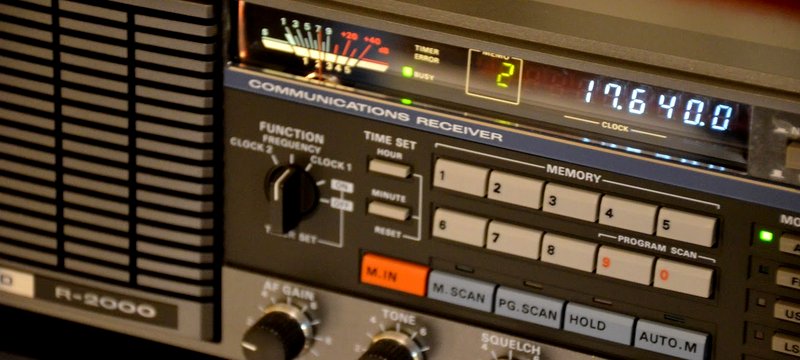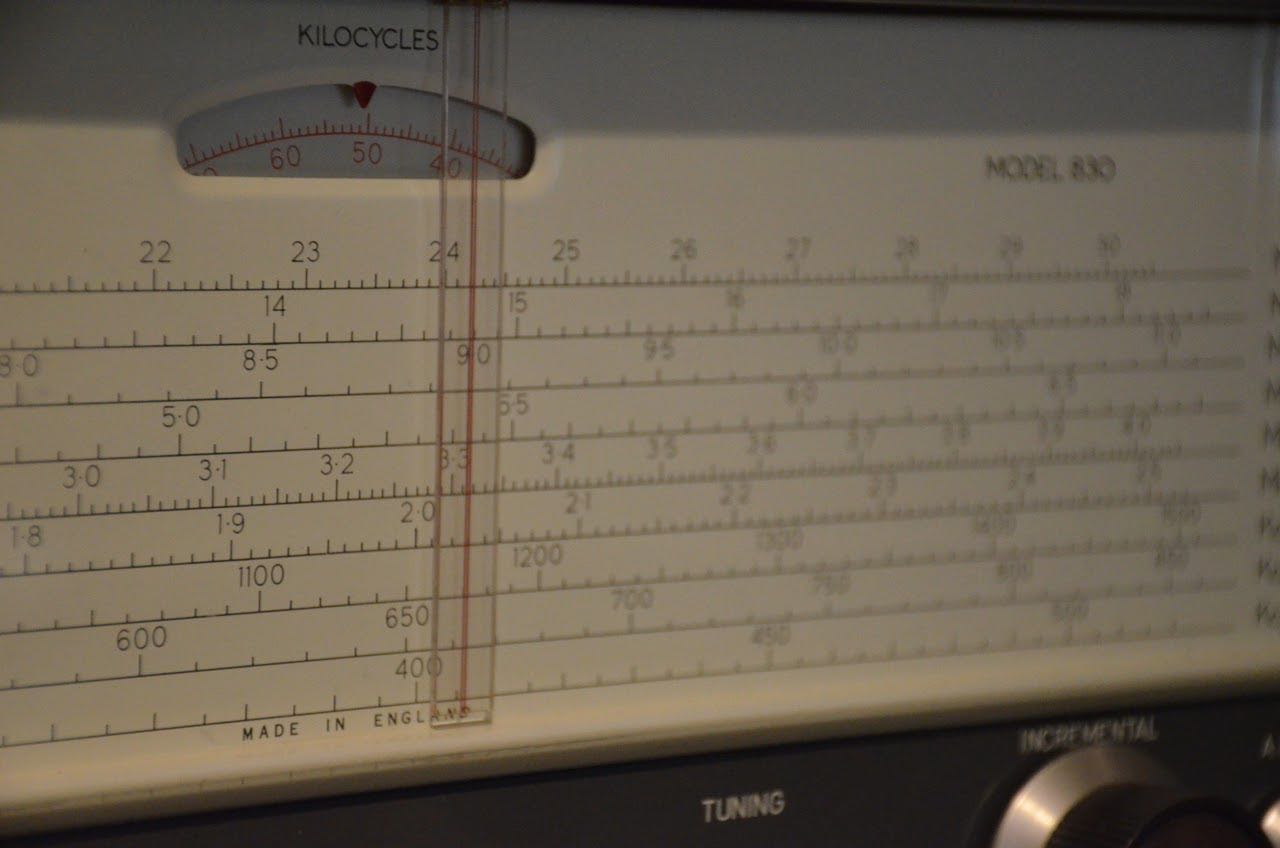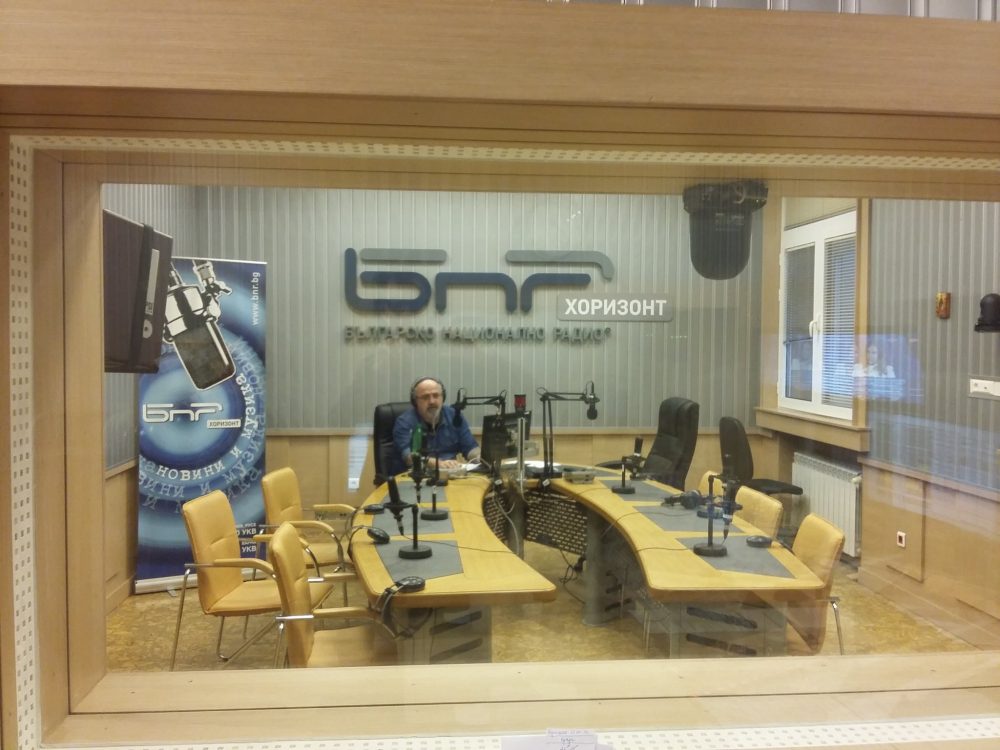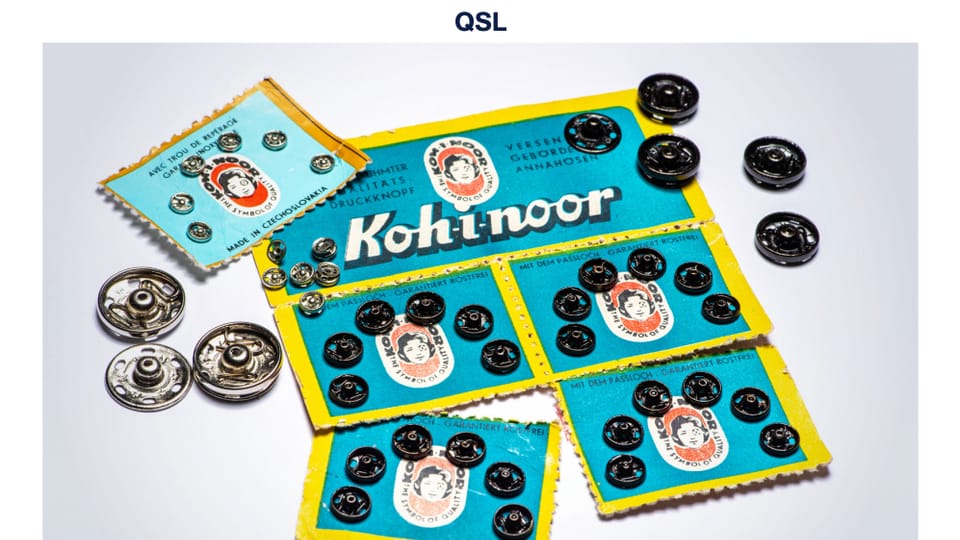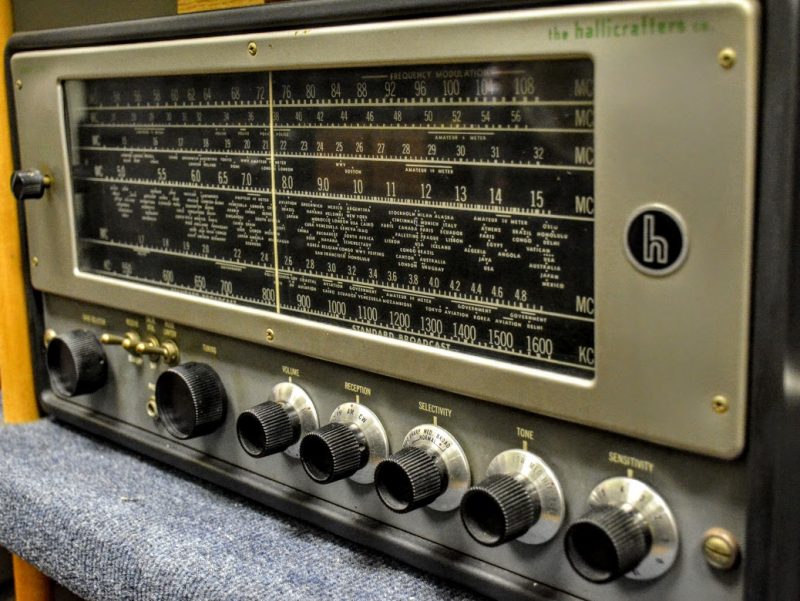
Radio Waves: Stories Making Waves in the World of Radio
Because I keep my ear to the waves, as well as receive many tips from others who do the same, I find myself privy to radio-related stories that might interest SWLing Post readers. To that end: Welcome to the SWLing Post’s Radio Waves, a collection of links to interesting stories making waves in the world of radio. Enjoy!
Many thanks to SWLing Post contributors David Shannon, Dennis Dura, and David Iurescia for the following tips:
Radio Tirana emerged as a global Communist voice in the 1970s, reaching Brazilian guerillas in Araguaia, Maoist factions across Asia, Africa, and Latin America, and many other listeners around the world. Elidor Mëhilli explains how this came to be.
“Dear Radio Tirana,” the letter begins, “here in the Alps we can hear you well, and we are especially fond of your propaganda directed at the Italian Communist Party.” The letter is dated April 12, 1976 but its Italian authors are not named. After a final greeting “Viva Mao e Viva Stalin,” they have simply signed off “a group of true Communists.”[i]
Two months earlier, in Entroncamento, Portugal, someone has penned a letter to the same station. “Camaradas,” his note begins, “I am a worker (a porter) who listens regularly to your Portuguese-language broadcasts.” The letter then proceeds with complaints about the fate of Communism in Portugal, with questions about Albania’s foreign policy, about why Radio Tirana spoke so infrequently about Portugal, about sports, about whether a trip to the Balkans might be possible.[ii]
By March, in Arequipa, Peru, a thirty-year-old places the recipient’s address on a small envelope: Señor Director, Radio Tirana, Albania.
He is among early Peruvian intellectuals who have been drawn to Mao Zedong’s ideas. Having completed a thesis on the topic, he is on his way to becoming a professor within a few years. “Unfortunately, I have to tell you that it’s been over a year that I do not receive your broadcasts,” he writes, “I think that it might due to the interference of the imperialist Yankees or perhaps the Soviet social-imperialists.”[iii]
Once a modest station, Radio Tirana had become a global Communist voice by the 1970s, reaching Brazilian guerillas in Araguaia, teeny-tiny Maoist factions across Asia, Africa, and Latin America, far-flung dots scattered across oceans and seas. This turned the station into a kind “of superpower of its kind” as author Ardian Vehbiu has put it. Officials embraced this role, broadcasting in numerous languages—English, Arabic, French, Italian, Greek, Portuguese, German, Indonesian—and beaming anti-capitalist and anti-Soviet messages day after day.[…]
We think we live in a digital age, but only half the world is currently online. Across the globe, small radio stations bind remote communities, play a dazzling array of music, educate, entertain and empower people to make change. Cameroon’s Radio Taboo, in a remote rainforest village 100 miles off the grid, relies on solar power; its journalists and engineers are all local men and women, and some of its audience listen on wind-up radios. In Tamil Nadu, Kadal Osai (“the sound of the ocean”) broadcasts to the local fishing community about weather, fishing techniques—and climate change. In Bolivia, Radio Nacional de Huanuni is one of the last remaining stations founded in the 1950s to organise mostly indigenous tin miners against successive dictatorships; its transmitters are still protected by fortified walls.
For World Radio Day, we visit community stations around the globe and celebrate the enduring power, possibilities and pleasures of the airwaves.
This program will be available shortly after broadcast on Feb 14, 2021. Click here for details.
A new targeted phishing campaign includes the novel obfuscation technique of using Morse code to hide malicious URLs in an email attachment.
Samuel Morse and Alfred Vail invented morse code as a way of transmitting messages across telegraph wire. When using Morse code, each letter and number is encoded as a series of dots (short sound) and dashes (long sound).
Starting last week, a threat actor began utilizing Morse code to hide malicious URLs in their phishing form to bypass secure mail gateways and mail filters.
BleepingComputer could not find any references to Morse code being used in phishing attacks in the past, making this a novel obfuscation technique
The novel Morse code phishing attack
After first learning of this attack from a post on Reddit, BleepingComputer was able to find numerous samples of the targeted attack uploaded to VirusTotal since February 2nd, 2021.
The phishing attack starts with an email pretending to be an invoice for the company with a mail subject like ‘Revenue_payment_invoice February_Wednesday 02/03/2021.'[…]
We reproduce excerpts from an article written on the 90th anniversary by the former Director of Vatican Radio, which were published in the latest issue of La Civiltà Cattolica.
By Fr Federico Lombardi, SJ
On 12 February 2021 it will be exactly 90 years since Pope Pius XI inaugurated the new Vatican Radio Station – built at his request by Guglielmo Marconi and entrusted to the care of Jesuit Father Giuseppe Gianfranceschi as its first director. The “mission of Vatican Radio was clear from the beginning: to be an instrument at the service of the Pope for his ministry of proclaiming the Gospel in the world and guiding the universal community of the Catholic Church. This mission has been preserved over time and has been reaffirmed several times by the Popes, guaranteeing a strong identity of the institution. […]
The voice of the Pope
Vatican Radio […] was founded in 1931, in the context of the rapid establishment of the new Vatican City State […]. The radio station built by Marconi was at the forefront of the technology of the time, and was able to provide telegraphic and radio service completely independently from Italy. Thanks to short-wave technology, in an “ether” not yet overcrowded with countless transmissions, it was possible to be heard on other continents with a rather low power. At the beginning of its existence, Vatican Radio was the instrument thanks to which the Catholics of the world could hear the voice of the Pope directly for the first time. […]
The 1930s were years of the power of totalitarianism. Pius XI’s positions were courageous and, in the thickening of the storm, he looked to the Church with confidence. The demand for broadcasts in different languages to guide and support the faithful in European countries grew rapidly. Father Filippo Soccorsi, appointed to lead the Radio in 1934 (at 34 years old!), after the untimely death of Fr. Gianfranceschi, not only dedicated himself to improving the technical structures — such as the new antenna towering over the Vatican gardens, known as “The Pope’s Finger” — but promptly grasped the expectation to make the Radio grow also in the content of its programming. Thus, in 1936, the Vatican Broadcasting Corporation was accepted into the International Broadcasting Union with a recognition of its special nature, which authorised it to carry out radio activities without any geographical limitations. Because of the limited means available, Fr Soccorsi asked for the collaboration of Jesuit brethren from various countries for the editing and presentation of the texts. The German-language broadcasts were particularly important.
In the tragedy of war: for peace and solidarity with the suffering
[…] On the eve of the war, in 1939, there were regular broadcasts in Italian, French, English, German, Spanish, Portuguese, Polish, Ukrainian, and Lithuanian, and the station was able to be a point of reference for the Church in the immense tragedy, playing its role of denouncing violence, supporting victims and members of the resistance, and encouraging hope. The “Radio-messages” of Pius XII in wartime, eagerly awaited and listened to with great attention throughout Europe, remain famous. His was the loudest and most authoritative voice rising above the warring parties in those terrible years, calling for justice and peace.
During the war, however, Vatican Radio became famous for another service: it was in fact a fundamental instrument of the great commitment desired by Pius XII with the “Information Office of the Secretariat of State,” set up in 1939 to track down missing civilians and soldiers and prisoners; to provide information to their families and, if possible, to re-establish among them at least a link of greeting and remembrance. […]
Vatican Radio devoted specific broadcasts to requesting news about the missing and broadcasting short messages from the families to the prisoners, whose names were slowly spelled out by the “metallic” voice of the speakers. These broadcasts reached 70 hours per week, with peaks of 12-13 hours per day. Between 1940 and 1946, a total of 1,240,728 messages were broadcast in 12,105 hours of actual transmission time. In some cases, the transmissions were broadcast over loudspeakers in prison camps. The testimonies of gratitude for this service were numerous and moving. This is one of the most beautiful pages in the history of Vatican Radio.
A voice for the “Church of Silence”
With the end of the war, Vatican Radio accompanied with its broadcasts the climate of moral and spiritual reconstruction of the countries devastated by the conflict, while preparations were in full swing for the great Holy Year of 1950, a time of renewed vitality of the Church.
But in the meantime, most of Eastern Europe fell under the oppression of the communist regimes, and the Catholic Church became the object of harsh persecution in many countries. This was an historic challenge for Vatican Radio, which was practically the only way through which the faithful could nurture their bond with the Pope and the universal Church and receive support for their faith. Even with limited resources, programmes in the languages of Eastern European countries became more numerous and were given more airtime. At the end of the 1940s, the programme in Polish — which together with Italian, English, French, Spanish and German had always been one of the main languages of transmission — was joined by those in Czech, Slovak, Hungarian, Lithuanian, Latvian, Russian, Croatian, Slovenian, Ukrainian, Romanian, Bulgarian, Belarusian and, shortly afterwards, Albanian. For decades, throughout the time of oppression, the broadcasts of Vatican Radio offered a regular and sure appointment for the faithful, religious, priests and bishops deprived of the freedom to express and live their faith.
There would be countless stories to tell about those years. In certain countries and in certain periods of the harshest persecution, listening to Vatican Radio was absolutely forbidden and seriously dangerous: it could be the cause of serious penalties, up to imprisonment and even — in some cases — the death sentence. For some languages, such as Polish or Slovak, the audience was high, while for others, where Catholics were a minority, there were not many listeners. But the principle that guided the fathers of the Radio, according to the Pope’s intention, was not the vastness of the audience, but the situation of need of the listeners. That is why the languages of broadcasting to Eastern countries have always represented more than half of the languages used by Vatican Radio. When, after many years, the walls fell, the gratitude of the faithful and the people could finally express itself in moving forms, such as the more than 40,000 letters that arrived at the Ukrainian Section in the first year after the fall of the Soviet regime, or the bestowal of the award of the Albanian State for the work of Vatican Radio. […]
Communication for communion
In 1970 the editorial offices and studios of Vatican Radio moved to Palazzo Pio, in front of Castel Sant’Angelo, providing adequate space in what would become the main headquarters of the station for decades. In 1973 Father Roberto Tucci […] succeeded Father Martegani in the general direction. We were on the eve of the Holy Year 1975 and the Radio was completely mobilised. It was not only a matter of broadcasting live the great papal celebrations, audiences and events, and of giving adequate information in all languages so that the universal Church felt involved, but also of providing a service for pilgrims arriving in Rome from all over the world. […]
Pasquale Borgomeo, who would become a dynamic and creative director of programmes; and Father Félix Juan Cabasés, in charge of the “Central Editorial Office,” later the “Documentation Service”: The former would greatly cultivate the valuable international relations of the station, in particular with the European Broadcasting Union (EBU); the latter would leave a lasting mark in the organisation of documentation and editorial programming. […]
Vatican Radio thus reached maturity, with increasing professional and journalistic quality, which makes it not only the beating heart of daily communication in the universal Church — “communication for communion”, as the Council hoped — but also an active protagonist in the wider world of Catholic and lay communication in the life of the Church.[…]
Do you enjoy the SWLing Post?
Please consider supporting us via Patreon or our Coffee Fund!
Your support makes articles like this one possible. Thank you!


